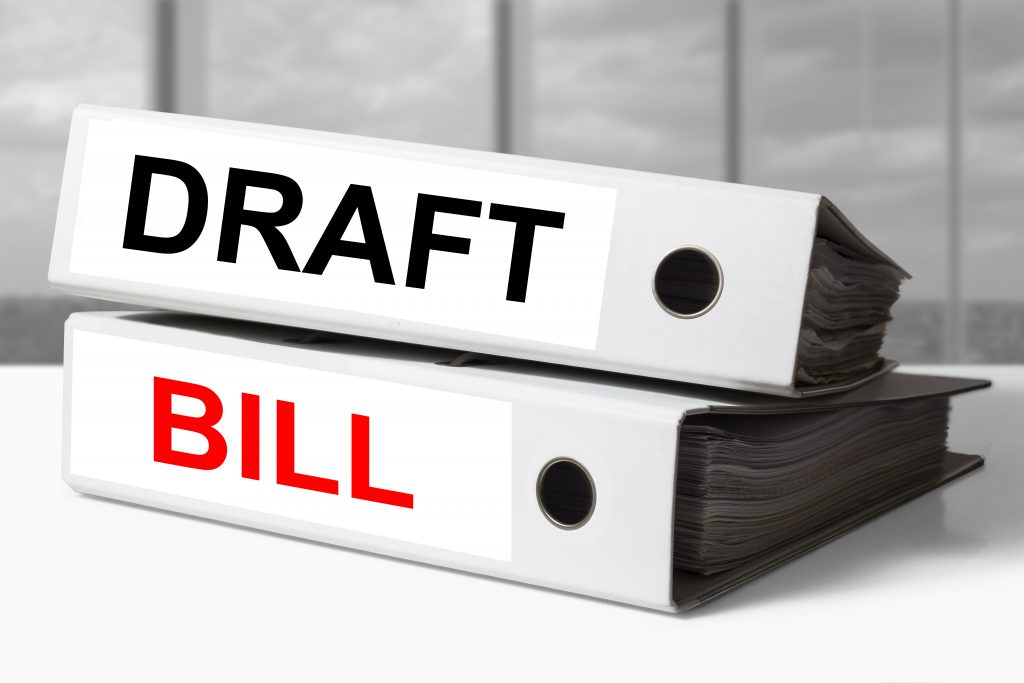It’s not exactly a bill that everyone is rallying around, and for good reason. But should the Cannabis Administration and Opportunity Act, a new cannabis legalization bill led by Senate Majority Leader Chuck Schumer, actually make it through, it would finally allow interstate sales for cannabis products, something that has been a sticking point for US legalized locations.
The new cannabis legalization bill by Schumer would allow interstate sales, which would mean a better product selection for everyone. And, of course, the general legalization of cannabis federally. But we’re not there yet, and until that happens, we’re still happy to provide you with great products like delta-8 THC, an alternate THC to delta-9, which leaves users more clear-headed and energetic, and doesn’t cause the same anxiety. While we wait for legalization on all fronts, take a look at our array of delta-8 THC, delta 10, THCO, THCV, THCP, THC-O & HHC deals, and be glad that many cannabis products are already accessible.
What’s the deal right now with interstate cannabis sales?
If you’ll notice, right now the cannabis industry in America is fractured by state. California cultivators can sell to Californian producers, and Californian producers can create products for the California market. But a California company cannot sell products either directly to consumers in another state, nor to producers in another state. This means that each legalized state functions as its own country, with its own private market.
The whole reason for this, is the discrepancy between state and federal laws in the US. The Constitution has a Commerce Clause in Article 1. This clause gives the government (Congress) the ability to regulate commerce laws between the US and other countries, as well as between states of the country, (and Native American tribes). What this means, is that if a product crosses a state line, it falls under the regulation of the federal government. So if the federal government finds it illegal…
Does this mean a cannabis company can’t exist in two states? No, luckily not. And if you’ve been to enough cannabis product sites, you’ve probably noticed that they don’t allow purchases online, but rather, allow you to find the closest location to where you are, where their products can be found. If you’re thinking, ‘I see tons of US sites selling products online with no regard to where they’re sent’, these sites are illegally operating. This doesn’t mean they can’t provide good products either, but it also means they can be dicey, might use bad ingredients, and likely have no oversite or useful 3rd party safety testing.

If a company does want to operate in more than one state, it must have an actual store – brick and mortar – in that location. This, of course, can get rather expensive, as many companies (in all industries) have turned to online sales as a way to avoid the cost of physical locations, which can add quite a bit of capital expense. It does seem like companies don’t necessarily need their own actual stores though, but must be aligned with a brick-and-mortar facility in order to have products sold in it.
What this also means, is that product producers who want to build vertical markets in multiple states, must have several separate markets for each of the states, rather then them all falling under parts of the same operation. If a person wants to cultivate the cannabis, produce the products, and then sell them in a dispensary, and they want to be in both Vermont and Colorado, it means having two separate operations in the two separate states, not simply one operation that just follows the individual state guidelines.
How the new cannabis bill would affect interstate sales
The Cannabis Administration and Opportunity Act wouldn’t simply say ‘go ahead and run your companies across state lines’. Like most government policy, it would help some, while possibly damaging others. Basically, the bill would give a pretty big advantage to cannabis operators in states where the weather is good, real estate is cheap, and where the current marijuana laws in place for licensing are less restrictive. For a state like New Jersey, this is horrible. On the other hand, for a state like Oklahoma, this is fantastic.
It’s likely that a measure such as this would drive business out of places like New York and New Jersey where real estate is expensive, the weather isn’t the best for growing, and the cannabis laws are stricter. If an operator can just as easily build their business in a cheaper state like Virginia, while still having access to the markets of the whole country (or at least other legal locations), why wouldn’t they? Who would want to pay more to set up in a financially less palatable location, when they can do it cheaper elsewhere? There’s a reason that so many customer support facilities are run out of 3rd world countries.
Right now, people getting into the general cannabis market in the States must build their strategy according to the local laws. This bill would end that, making the states with less restrictive licensing laws, the much more attractive locations to base companies out of.
Why is this cannabis bill not liked?
Very few bills center around one specific topic – like interstate sales, and instead encompass tons of different provisions regarding the regulation of many aspects of a market. Opening up for interstate sales is one aspect of this bill, but the meat of the bill is that it would legalize cannabis nationwide, by taking it off of the Controlled Substances list. This comes with the removal of Section 280E from the Internal Revenue Service tax code, which would allow cannabis businesses to use the same deductions for business expenses, as other non-cannabis enterprises.

To be clear, what Schumer and pals put out, is really just a discussion draft, with 163 pages detailing what legal recreational cannabis could look like in America. One of the biggest detractions and points of controversy, has to do with a countrywide excise tax, starting at 10% and rising to 25% in five years time. Governments seem to be having an extraordinarily difficult time understanding that overtaxing this market means it simply will not divert as expected from the black market.
In comparison, the MORE Act, a bill that would not legalize, but which would decriminalize and deschedule cannabis, and which is focused on the social action side of legalization, would require only a 5% federal tax, which would increase to 8% over time. There are, of course, plenty of issues with that bill as well, however, the existence of both bills shows a growing awareness that a federal measure does need to be taken. There doesn’t seem to be a direct answer to the question of how many states would have to legalize in order to force a federal mandate change.
California is a good example of the difficulty of the industry from these huge taxes that raise product prices, though every state certainly charges a lot. This excise tax wouldn’t be the only tax, but rather another tax added onto other state and local taxes. In fact, officials in the industry do see this, and have already started arguing that this would be way too heavy for operators, and far too high to compete with the black market.
This tax issue, along with other elements, has led the legalization bill to much criticism from both sides – opponents to legalization (obviously), as well as activists for it. However, there are also some positive points that should be considered. For example, one thing the bill does stipulate is that, even if the excise tax is high, smaller businesses which bring in less than $20 million in yearly sales, could get (or are at least be eligible for), a 50% excise tax reduction.
This would take place with a credit. Those with over $20 million in sales would also be eligible for a partial credit on the first $20 million of yearly earnings. Anything over that mark would be hit with the full excise tax.
Has this cannabis legalization bill been officially introduced yet?
Actually no. The draft for this cannabis bill, which would allow for interstate sales, was put out by Schumer and co-sponsors Sens. Cory Booker and Ron Wyden, July. While it was originally thought that the actual bill would be put forward by now, it seems Schumer and the rest are listening to comments on their draft, and hopefully making some updates to iron out the disenchantment on both sides.
This will go on until the beginning of September, with the new expectation being that the actual bill won’t make an appearance until a couple months after that. This is probably a good thing since it wasn’t exactly welcomed warmly, even by those pushing for legalization. Schumer, apparently, hopes it to get to the floor of the Senate for a vote by spring 2022, meaning the pace is slow on this one.
“I think it’s going to be a longer process than a lot of the industry would like and a lot of folks are expecting,” said David Mangone, the director for policy of the cannabis lobbying effort, the Liaison Group. Of course, in order for it to pass the Senate, about 10 republicans would have to vote positively, and this could be hard to come by. Mangone went on to say that he expects there will be plenty of comments on the tax issue, and that he expects changes will be made.
Hemp-Derived Delta-9 THC Is Finally Here

One problem seems to be that the government really wants the tax revenue to cover the restorative justice and social equity provisions in the bill. While I’m not a politician, I find it frightening that taxes would be levied to fulfill something like this, with no thought as to how the taxes can effect the sheer ability to earn the revenue in the first place. If we already know that high taxes dissuade people from using the legal markets, then simply expecting that a tax rate like this can be set, and people will keep buying, shows a massive and critical lack of understanding by those whose job it is to make the laws that govern our industries.
If the concern is covering these programs, perhaps how much is being put into them, and where the money comes from, should be considered. Just like it should be considered that when trying to divert from a black market, starting with lower prices is the best way to reel clients in, even if it means raising them later. Creating that initial customer base is important. Starting with high prices will almost ensure that the industry will never succeed. So, while its great that the tax revenue is meant to fund projects, it won’t be helpful if people don’t buy the products in the first place.
Conclusion
The draft version put out of this cannabis bill, which would allow interstate sales, would never have passed, but its quite possible that a well-revised version could gain more traction. Regardless of whether it, or the MORE Act, actually do pass into law, the important thing to realize is that there are two bills for legalization/decriminalization measures in the US federal government right now. If one of these two doesn’t make it, another one will soon.
As far as Schumer’s draft bill, I believe it makes some wildly bad mistakes in taxation, and in how it presents interstate sales, but I do like that it pushes for full legalization, and the ability to have a country-wide market. How it ends up doing, remains to be seen.
Welcome to CBDtesters.co! This is your #1 location for the most interesting and up-to-date cannabis and psychedelics-related news from every corner of the world. Check through the site regularly to stay aware of the quickly-changing universe of legal drugs, and sign up to be on our newsletter list, to ensure you always know what’s going on.
Disclaimer: Hi, I’m a researcher and writer. I’m not a doctor, lawyer, or businessperson. All information in my articles is sourced and referenced, and all opinions stated are mine. I am not giving anyone advise, and though I am more than happy to discuss topics, should someone have a further question or concern, they should seek guidance from a relevant professional.










